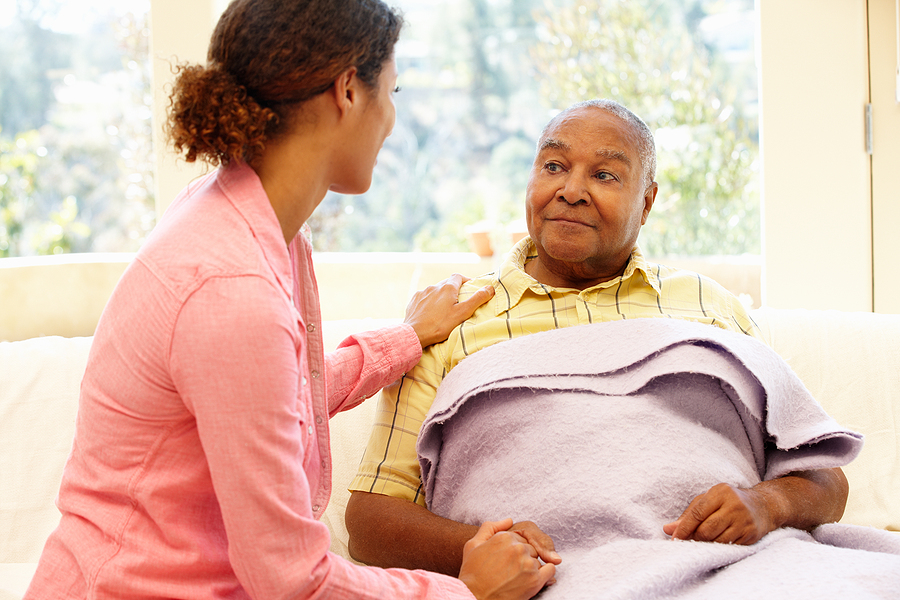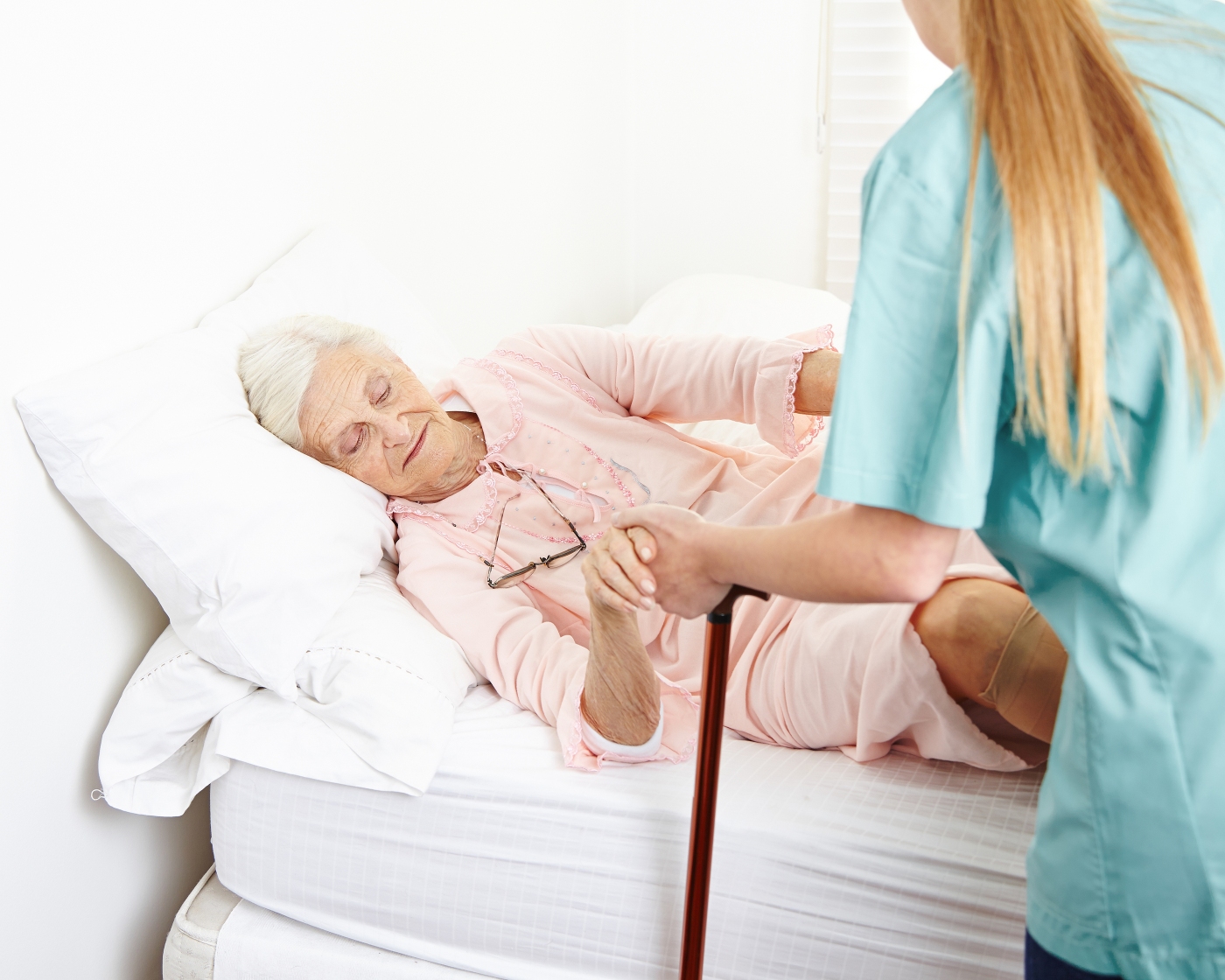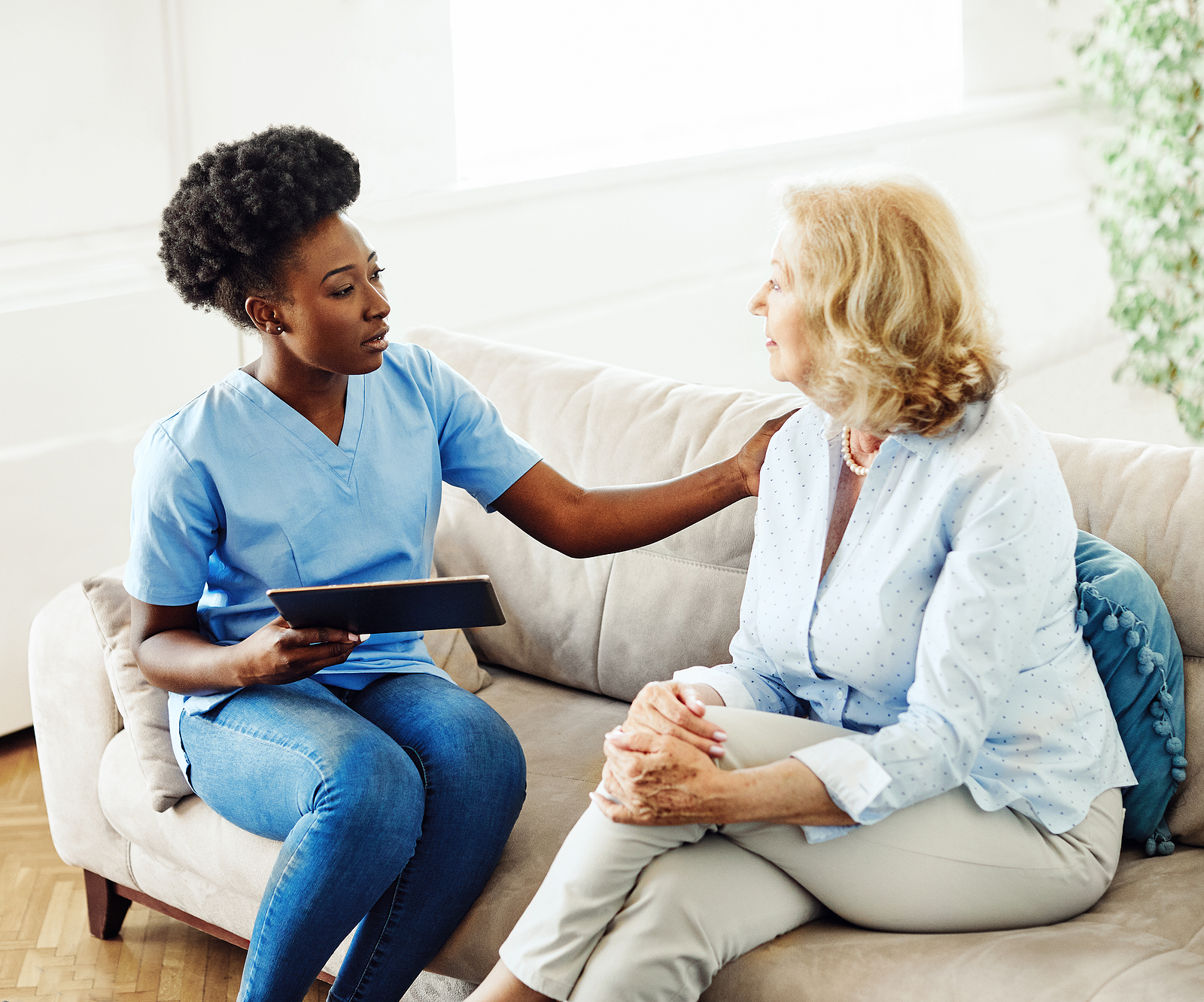How to Help Your Senior Parent Deal with Depression

It is not uncommon to sometimes feel sad or blue. These feelings can sometimes last for days at a time. This may happen due to any unfortunate event in life like job loss, break up, or death of a loved one. At these blue times life seems to be more monochromic and grey where negative aspects come to mind. This may cause disruption of sleep, eating disorders, and feeling low. If this situation persists for a prolonged period then it leads to clinical depression.
Clinical depression is very common in seniors, but that does not mean it is normal. In a survey, it was found that old age depression affects around 6 million people-but only 10% of them get treated. The main reason behind this apart from negligence is, seniors often display symptoms of depression differently. It may be hard to diagnose clinical depression in your loved one- but this is where in-home care services come in handy to aid you and your loved one.
Symptoms:
In seniors with depression, there is a higher chance of cardiac diseases, including fatal heart attacks and strokes. This also can cause seniors to lose their ability to rehabilitate. For these reasons, the evolution of your loved one for depression is crucial, even though the present outcome is mild. As mentioned earlier, seniors may not have the textbook symptoms of depression all the time. Instead, they may have some other indications, such as-
- Sleeping disorders
- Mood swings
- Irritations
- Physically slowed down
- Attention deficit
- Sudden change in appetite
- Sudden change in weight
- Talking negatively
- Not enjoying any company or activities
- Constant aches and pain
- Having suicidal thoughts
- Memory problems
- Neglecting personal care and hygiene
- Increased use of alcohol
Treatments:
There are several ways to treat clinical depression that includes psychotherapy, counseling, medicine, electro convulsive therapy and also other newer forms of brain stimulation such as repetitive transcranial magnetic stimulation or RTMS. In some cases, combinations of the treatments may also be used. But the due course of the treatment should be determined by a doctor depending upon the overall health condition and the severity of the patient. Your senior parent may be prescribed medication to help them maintain their mental health, and an in-home care provider can offer medication reminders to ensure compliance.
Preventive measures:
It has already been proven as a myth that seniors can not learn new things. The medical fact is that the human brain is designed in such a way that it never stops changing, even in older people. A senior is very capable of learning new things and adapting to new ideas that can be helpful to recover from depression. There are many rejuvenating ways to recover-
- Reach out and stay connected always
- Volunteer time
- Take care of a pet
- Join support groups
- Find meaning or purpose
- Learn new skills
- Uphold self esteem
- Travel
- Adopt healthy habits
- Spend time in sunlight
Conclusion
The more your loved one gets busy with their own lives and connected to other people, less the chances of them being affected by depression. Getting the help of in-home care professionals may be a good choice as they can take a burden off you and your family. Call us today and review your options!
Sources:
https://www.sciencedirect.com/science/article/pii/S2352827318300934
https://bmcgeriatr.biomedcentral.com/articles/10.1186/1471-2318-7-6
https://www.nia.nih.gov/health/depression-and-older-adults
Subscribe
Date: September 10, 2021


